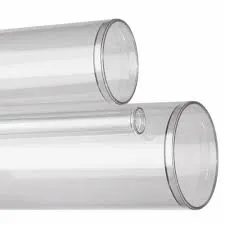Nov . 03, 2024 03:50 Back to list
sprinkler hdpe pipe
The Importance of HDPE Pipes in Sprinkler Systems
In recent years, the agricultural industry has increasingly recognized the need for efficient irrigation systems to optimize water usage and enhance crop productivity. One of the most effective solutions available today is the use of High-Density Polyethylene (HDPE) pipes in sprinkler systems. These pipes have revolutionized the way water is delivered to crops, offering numerous benefits over traditional materials.
Durability and Longevity
HDPE pipes are renowned for their exceptional durability. Made from high-density polyethylene, these pipes resist corrosion and are not susceptible to rust, which is a common issue with metal pipes. This resistance ensures that HDPE pipes have a longer lifespan, often exceeding 50 years when properly installed and maintained. By investing in HDPE piping for sprinkler systems, farmers can reduce replacement costs and minimize disruptions in irrigation.
Flexibility and Ease of Installation
Another significant advantage of HDPE pipes is their flexibility. Unlike rigid piping materials, HDPE can be easily bent and shaped to accommodate various landscape contours, allowing for more efficient installation. This flexibility also means that installation can often be completed quickly, reducing labor costs and downtime. Furthermore, HDPE pipes can be joined through heat fusion, creating seamless connections that enhance the robustness of the system.
Lightweight and Safe Handling
sprinkler hdpe pipe

The lightweight nature of HDPE pipes makes them easy to transport and handle on-site. Farmers and irrigation specialists can manage the pipes without the need for heavy lifting equipment, which not only saves time but also reduces labor costs. Additionally, HDPE is safe for the environment and human health, as it does not leach harmful chemicals into the soil or water systems, making it an eco-friendly option.
Cost-Effectiveness
While the initial investment in HDPE pipes might be higher than traditional materials, the long-term savings are substantial. The durability and lower maintenance requirements of HDPE mean that less money is spent on repairs and replacements over time. Moreover, the efficiency of sprinkler systems utilizing HDPE pipes can lead to significant reductions in water usage—an essential factor in regions facing drought or water scarcity.
Enhanced Irrigation Efficiency
The effectiveness of sprinkler systems relies heavily on the quality of the piping used. HDPE pipes support efficient water flow and pressure, ensuring that water is distributed evenly across the agricultural land. This even distribution promotes healthier crops and can lead to increased yields. Moreover, HDPE’s smooth interior surface reduces friction loss, enabling the system to operate more effectively.
Conclusion
In conclusion, the use of HDPE pipes in sprinkler systems offers a multitude of benefits for modern agriculture. From their durability and lightweight nature to their cost-effectiveness and environmental safety, HDPE pipes are an excellent choice for farmers seeking to enhance irrigation efficiency. As agriculture faces the challenges of climate change and water scarcity, the adoption of advanced materials like HDPE will be crucial in developing sustainable farming practices. Investing in HDPE piping not only improves the viability of agricultural operations but also contributes to a more sustainable future for food production. Whether for small-scale farming or large agricultural enterprises, HDPE pipes are undoubtedly a wise investment for any sprinkler irrigation system.
-
Premium Wireless Headphones: Noise Cancelling & Long Battery | Order Now
NewsJul.21,2025
-
High-Quality PPR Pipes and Fittings Durable ERA PPR & PVC PPR Solutions
NewsJul.08,2025
-
Black HDPE Cutting Board - Durable, Non-Porous & Food Safe HDPE Plastic Cutting Board
NewsJul.08,2025
-
High-Quality CPVC Panel Durable HDPE & PVC Panels Supplier
NewsJul.08,2025
-
Double PE Welding Rod Supplier - High Strength, Durable & Versatile Welding Solutions
NewsJul.07,2025
-
High-Quality PVC-O Pipe Supplier Durable 75mm PVC Pipe & Connections Leading PVC Pipe Company
NewsJul.07,2025

